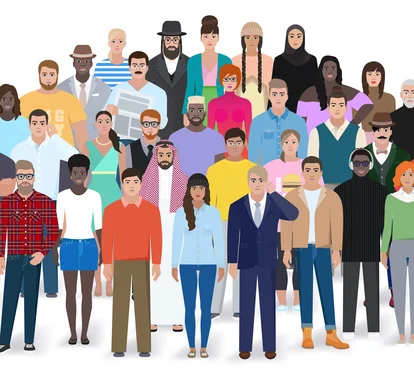In our current financial system, trust in a third party is required to carry out a transaction. If you send money to a friend, it goes through your bank and his bank. You don't know these banks personally; you just have to assume that they are doing the transaction correctly. The banks therefore operate as a kind of "black box. Trust in our financial system is essential here. If that is missing, then this system cannot work.
To ensure this trust, these banks are monitored by trust institutions. On a Dutch level, these are the Netherlands Authority for the Financial Markets and the Dutch Central Bank. At the European level, they are joined by the European Central Bank, the European Banking Authority and the European Securities and Markets Authority. All these institutions must guarantee the stability of the financial system; because these institutions express their confidence in the banks, we can rely on that system. Yet uncertainty about stability remains, as we saw during the European sovereign debt crisis of 2010.
Nakamoto, the anonymous developer of bitcoin, saw that any system based on necessary reliance on the intermediary has shortcomings. He therefore developed a system that processes transactions without an intermediary. In the place of that intermediary, he placed a payment system without intermediaries. We also see this in Bitcoin. In the Bitcoin network, a transaction is handled by the miners [2] who are rewarded for it. In this way, it becomes possible to make transactions without an intermediary and you no longer need to trust the 'black box' bank.
The second problem, double-spending, involves the question: if no one has the power to monitor and adjust transactions, how can we guarantee that the transactions are correct and fair? In a system with a central authority, like a bank, this is solved by the bank approving each transaction. But in a blockchain network, we want to get rid of the central authority. Bitcoin solves this problem by making the entire transaction history public, announcing transactions publicly, and getting consensus on them.
Agreements
So Bitcoin makes it possible to perform transactions within a network without a third party. But how can you perform something, like applying for a loan, within a network without an intermediary? With the blockchain Ethereum! Because this blockchain makes comprehensive smart contracts possible.
Smart contracts are similar to the way we handle a soda machine. If I enter number 31 and put enough money in the machine, I automatically get the soft drink that goes with number 31. No other authority is needed for this; someone programmed it so that money and soda can be exchanged.
Smart contracts are therefore agreements that, after a certain condition is met, automatically perform actions. For example: if I demonstrate that I live in the Netherlands and have sufficient income, a smart contract can automatically provide me with a loan. More complex rules can also be set up, as long as there are clear conditions that lead to a certain outcome. This provides building blocks for groups of smart contracts, applications, and perhaps even groups of freelancers operating united without a central authority. [3] Disintermediation and smart contracts give us insight into the direction of blockchain application areas.



